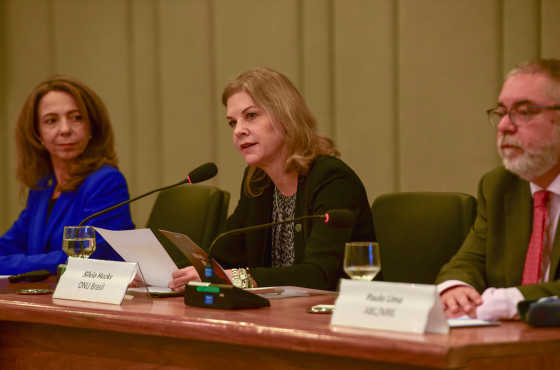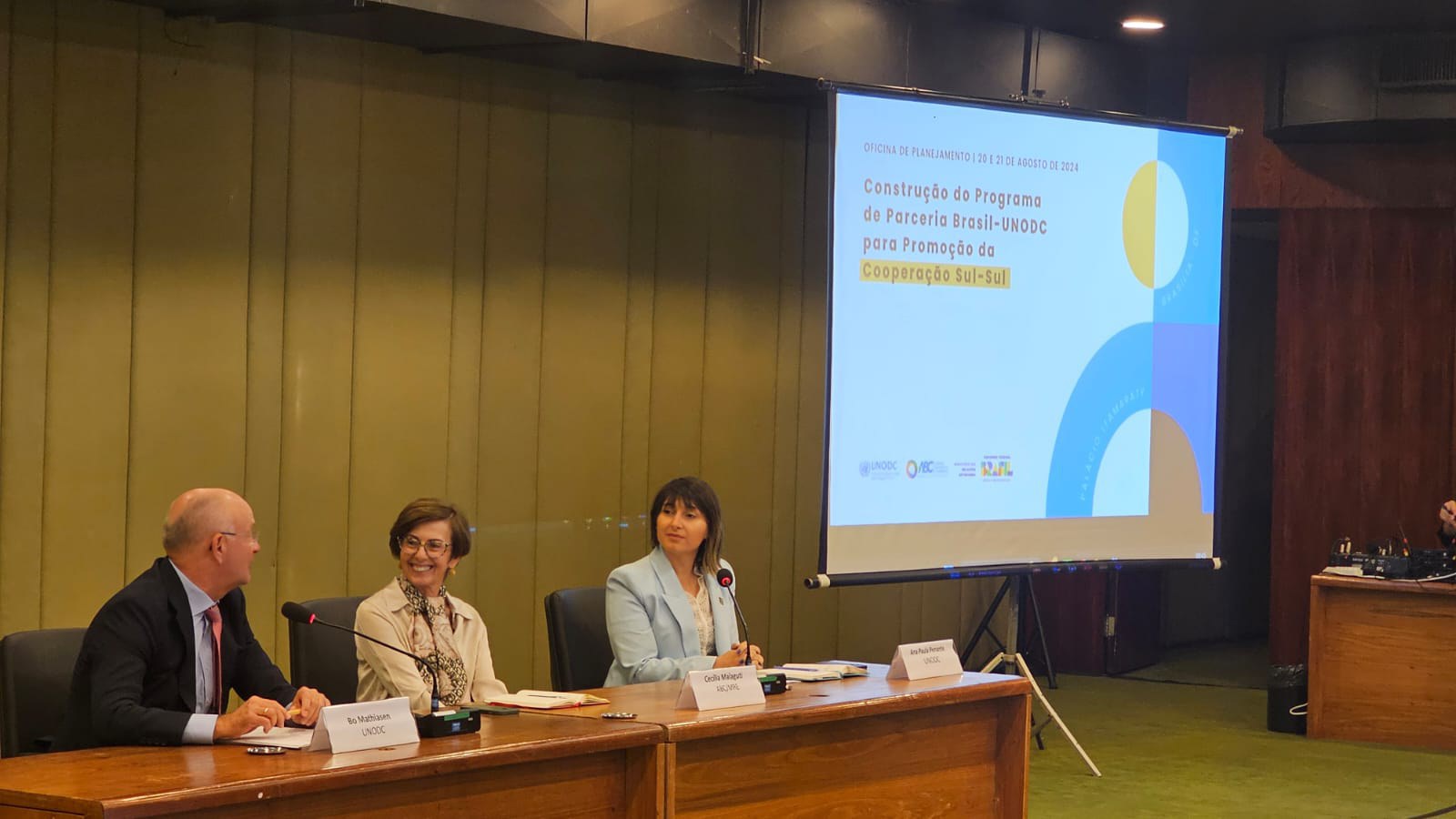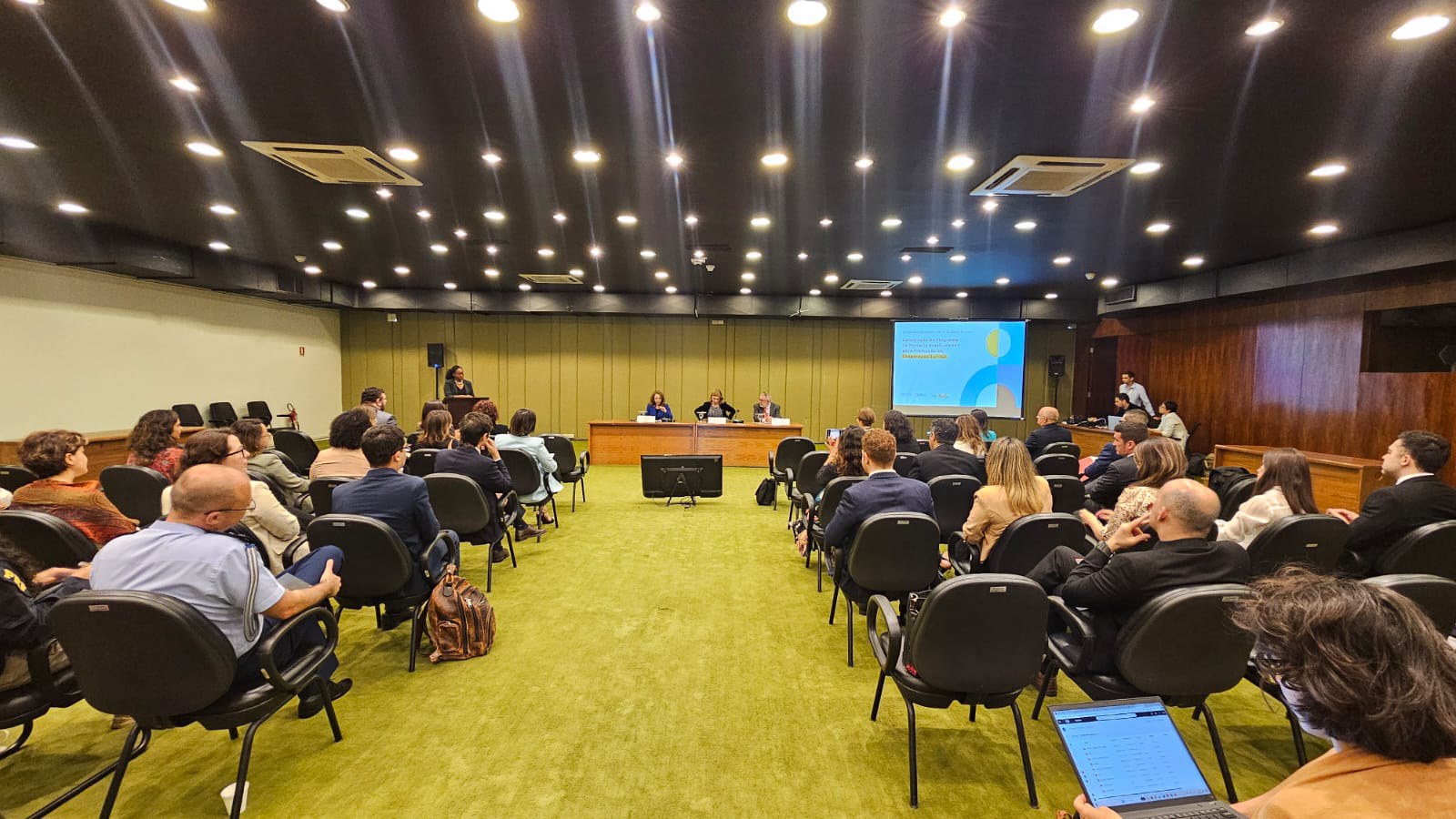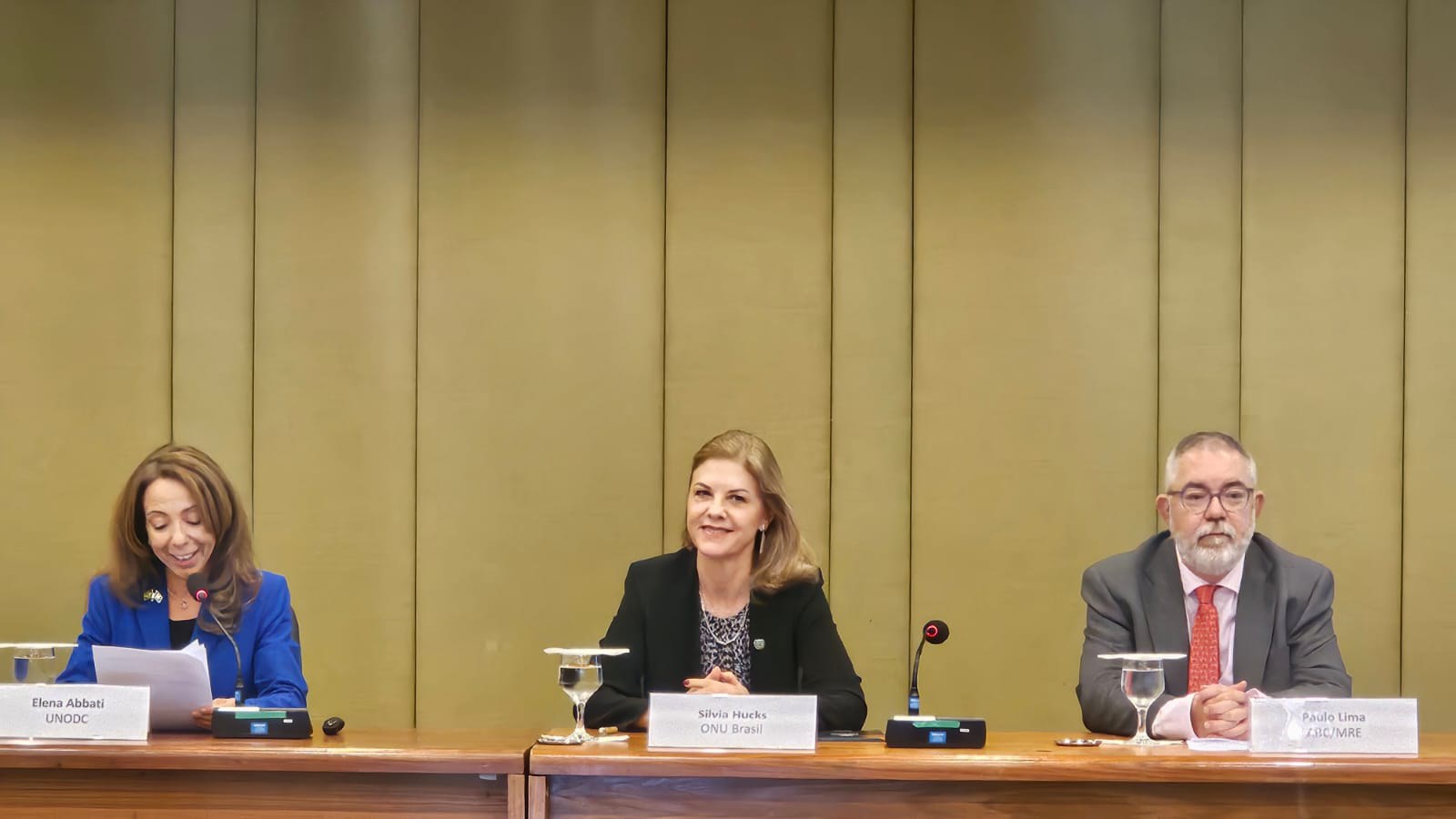Notícias
ABC and UNODC discuss strategic alliance to promote South-South cooperation

- ABC and UNODC discuss strategic alliance to promote South-South cooperation
The objective was to align the expectations of the parties involved and define the priorities for joint cooperation for the 2025-2029 period, marking the establishment of the ABC-UNODC strategic partnership to face the challenges of Brazil and countries of the Global South in areas such as drug prevention, combating organized crime, among other issues.
At the opening table, Silvia Rucks, UN Resident Coordinator in Brazil, the Director of UNODC in Brazil, Elena Abbati, and ABC's General Coordinator for Planning and Communication, Minister-Councilor Paulo Lima, highlighted the strategic relevance of South-South and Trilateral Cooperation for the implementation of the 2030 Agenda and the promotion of the Sustainable Development Goals (SDGs).
Rucks emphasized the importance of South-South cooperation as “a powerful mechanism to promote the exchange of knowledge and experiences, which allows countries to learn from each other and face common challenges in a collaborative way” and highlighted UNODC's role in consolidating SDG 16 in Brazil, for promoting peaceful and inclusive societies.
“UNODC supports the creation of more effective institutions and the development of policies that promote security and social justice. This synergy between UNODC's mandate and the SDGs addresses immediate issues related to drugs and crime, but also contributes to sustainable development and the creation of more just and resilient societies,” said UNODC Director in Brazil, Elena Abbati.
For ABC's Planning and Communication Advisor, Paulo Lima, the event “is the result of the common understanding between ABC and UNODC that it is necessary to jointly explore issues, develop strategies and new implementation tools to achieve the objectives of South-South and trilateral cooperation in the country and in partner nations”.
The Head of Trilateral South-South Cooperation with International Organizations at ABC, Cecilia Malaguti do Prado, emphasized the importance of joint and integrated execution of initiatives, pointing out that cooperation with UNODC will allow Brazil to strengthen its position as a regional leader in promoting peace, security and development. He also stressed the importance of trilateral cooperation, which enables the exchange of knowledge and the implementation of innovative practices in other countries facing similar challenges. At the end of the workshop, the participants began drafting a document that will serve as the basis for building the partnership program to be signed between the two institutions.

- ABC and UNODC discuss strategic alliance to promote South-South cooperation

- ABC and UNODC discuss strategic alliance to promote South-South cooperation

- ABC and UNODC discuss strategic alliance to promote South-South cooperation